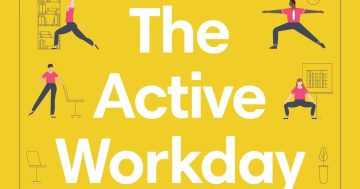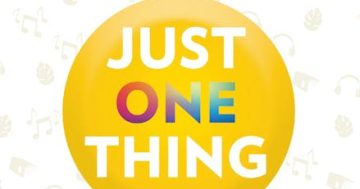Mel Kettle* offers advice on how to turn intentions into actions.
 As humans we are motivated by many things, which might include being involved in meaningful and important work, making a difference to the world, earning enough money to pay the bills or providing as good a life as we can for ourselves and our family.
As humans we are motivated by many things, which might include being involved in meaningful and important work, making a difference to the world, earning enough money to pay the bills or providing as good a life as we can for ourselves and our family.
Motivation is what gets us out of bed in the morning and helps us achieve our goals.
However, motivation alone isn’t enough for us to get things done.
Getting things done requires taking action.
Some people find it far easier to take action than others.
Perhaps you know someone who is a gunna and not a doer.
Or maybe it’s you?
Do you find yourself saying, ‘I’m going to do this…’ but never do?
If so, here’s six steps to becoming an action taker:
- Just start
One of my mentors says action begets action.
She means that once you start something, you start to build momentum, you get into a routine, and good things happen.
If there is something you really want to achieve, just start.
- Map out a plan
Early in my career I organised conferences and events.
My love of planning can be traced back to these days when we reverse-engineered all our conferences.
That meant we knew our goal (a successful conference on X date) and worked backwards to unpack what needed to be done and by when.
Today I have a three-year strategy for my practice, chunked into ninety-day action plans.
I love the ninety-day concept as it’s enough time to achieve something tangible and work out whether it is likely to succeed.
I have a goal and a set of activities I need to do to achieve the goal, with relevant timeframes that are determined by what else is happening in my life over that quarter.
- Create the right habits and routines
Having an embedded set of habits and routines means we are more organised and can save time.
It can also help us achieve better outcomes, reduce anxiety, have greater confidence and improve performance.
Charles Duhigg, author of The Power of Habit, writes that a habit is a choice that we deliberately make at some point.
We then stop thinking about it but continue doing it, often every day.
A routine is a behaviour or a set of behaviours that we frequently repeat.
Unlike a habit, we can skip or change a routine and not feel awkward about it.
For example, your habit might be eating the same food for breakfast every day.
And one of your routines might be how you spend the first and last thirty minutes of your workday.
- Be ruthless about distractions
If we aren’t interested in what we are doing, we will always find a way to be distracted.
And with technology designed to distract, it’s more important than ever that we find ways to remove what will prevent us from taking the action that will help us achieve our goals.
One way to do this, is to remove external triggers, such as unnecessary apps on your phone.
A few years ago, I took Facebook and email off my phone, and I was shocked at how much more time I had to do what was really important to me.
Give it a go for a few days and see if it makes a difference for you.
Even removing email on weekends and holidays can make a positive difference.
- Track your progress
A great way to stay motivated is to measure and track what you have achieved, so you feel good about what you’re doing.
Research has found that out of all the things that can boost our mood and keep us motivated during the workday, ‘the single most important is making progress on meaningful work’.
One way I like to track progress is to break a big goal or project into smaller tasks, set some metrics around them, and frequently monitor progress.
For example, one of my goals is to make 100 sales calls a quarter.
I’m very visual so I track this on a piece of paper with checkboxes and lines so I can tick the box and write the name of the person I called.
It’s easy to see where I’m at and how many more calls I need to make.
- Celebrate the wins
We often celebrate our big wins – major milestones and achieving important goals, but it’s easy to get caught up in the day-to-day of work and life and forget to celebrate the small wins.
Celebrating a small win could be as simple as doing a happy dance.
A bigger win might have a bigger reward.
For many years, I celebrated gaining a new client by adding a new cookbook to my collection.
Which of these could you start doing so you become more of an action taker?
*Mel Kettle is an internationally recognised expert at fully connected leadership and communication. She is the host of podcast This Connected Life and author of two books, Fully Connected and The Social Association.
Visit www.melkettle.com











